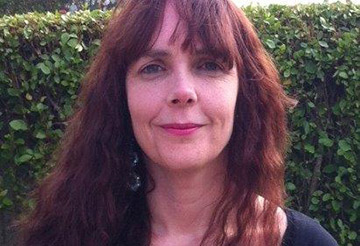


Returning from service and readjusting to life outside the military can be challenging. It can also mean dealing with the deeply distressing and disabling symptoms of combat related post-traumatic stress disorder (PTSD).
If you feel isolated or withdrawn from others, remember that you're not alone. There's plenty of support to help you with your thoughts and feelings.
Understanding the symptoms of combat PTSD
PTSD happens when someone experiences severe trauma or danger. It can develop hours or days after the event, but can sometimes take months or years to surface.
Combat PTSD symptoms differ from person to person. There are four main groups that veterans can experience:
- Recurring, intense reminders - nightmares and flashbacks can make a person feel that an event is happening again, leading to extreme emotional reactions such as panic attacks, uncontrollable shaking and heart palpitations
- Isolation and avoidance - a person may withdraw from other people, places or situations they associate with a traumatic experience, or where there may be triggers that relate to a traumatic experience
- Changes in thoughts and mood - a person may feel very low in mood, and may have feelings of anxiety, guilt and/or shame
- Constantly being on edge - a person may appear irritable, angry and may struggle with impulse control. They may also have difficulty sleeping and trouble concentrating
PTSD is a disorder of the fear response and memory. When someone is struggling with PTSD, their fear response stays switched on, leaving them on edge long after the trauma has ended. Rather than filing the memory away, it's kept at the forefront of the mind, causing flashbacks to feel so vivid that it's like reliving the trauma, where the tastes, smells, sights and sensations of the event are re-experienced.
Coping with combat PTSD and its symptoms
If left untreated, combat PTSD symptoms can become serious and affect many aspects of life. There are different strategies that you can use when dealing with PTSD:
- Discuss how you're feeling with family and friends. They may be finding it tough to see you struggle, so tell them what you're going through so they can offer you the support you need
- Doing something positive can help you to overcome feelings of helplessness, so try your hand at exercising or volunteering
- Avoid drugs and alcohol as they won't help to solve the problem in the long-term
- Spend time outdoors in a relaxing environment with positive people that you trust
- Join a support group where you can meet people who are going through similar experiences
Treatment for combat PTSD
There are a number of treatments available for people diagnosed with PTSD. Combat Stress provides many veterans with mental health treatment and support.
Priory also has options available, and our specialists will be able to recommend the most suitable treatment for your personal circumstances. The treatments that can be used for PTSD include:
- Trauma-focused cognitive behavioural therapy (TF-CBT) -CBT can help you to understand your thought processes and how to change your feelings and reactions to symptoms
- Eye movement desensitisation and reprocessing (EMDR) for PTSD - EMDR combines exposure therapy and CBT with eye movement techniques. While focusing on a traumatic experience, special rapid eye movements can help you through the healing process and improve your confidence
- Group therapy/supportive psychotherapy - discussing your emotions and trauma with other PTSD sufferers can help you get a greater understanding of your condition and emotions. It can also help you become more confident and trusting, allowing you to focus more on the present than the past
- Mindfulness - mindfulness is a thought process that allows us to pay attention to, and clearly view what's happening in our lives. While it can't eliminate life’s pressures, it can be a good way to help you deal with them in a calmer way, which can be beneficial to your overall wellbeing
- Compassion-focused therapy (CFT) - CFT is a system of psychotherapy developed by Paul Gilbert that uses techniques from CBT with concepts from evolutionary psychology, social psychology, developmental psychology, Buddhist psychology and neuroscience. It helps people to experience compassion for both themselves and others, helping them to develop and work with experiences of inner warmth, safeness and soothing



